新概念2第三课课件
新概念英语第二册第三课(精校版)
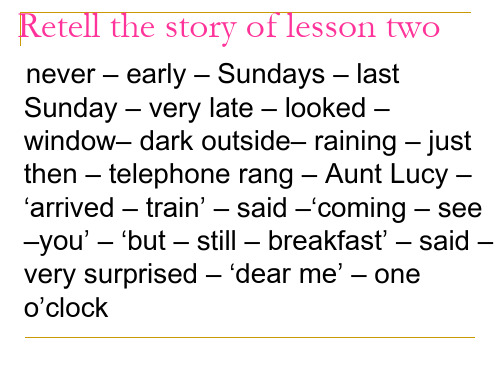
I visited museums and sat in public gardens. A friendly waiter taught me a few words of Italian. teach sb. sth. 教某人某事 王老师上学期教我们语文 Miss Wang taught us Chinese last term. He teaches our English.
★spoil(spoiled,spoilt) ① vt. 弄坏,损坏,糟蹋 这不幸的消息使我们没能过好周末。 The sad news spoiled our weekend. 这场雨把学校运动会弄得一团糟。 The rain spoiled the school sports meeting. This spoiled my day. What you said spoiled me. His arrival spoiled my holiday.
Lesson 3 Please send me a card!
Pictures of Rome
Crazy for ancient culture?
“All roads lead to Rome!”
Crazy for fashion?
Go to Milan!!!
Crazy for water and carnival?
ቤተ መጻሕፍቲ ባይዱ
★lend v. 借给 (借出) lend sth. to sb/lend sb. sth. 你能把你的自行车借给我吗? Can you lend me your bike? Can you lend me ¥20 please? I’ll pay/give it back tomorrow. borrow (借进):borrow sth. from sb./borrow sth. (borrow不能用 borrow sb. sth.) 他昨天借了我的笔。 He borrowed my pen yesterday. I lent him my pen yesterday. = I lent my pen to him yesterday.
新概念英语第二册第三课(包含课文及完整课后练习)
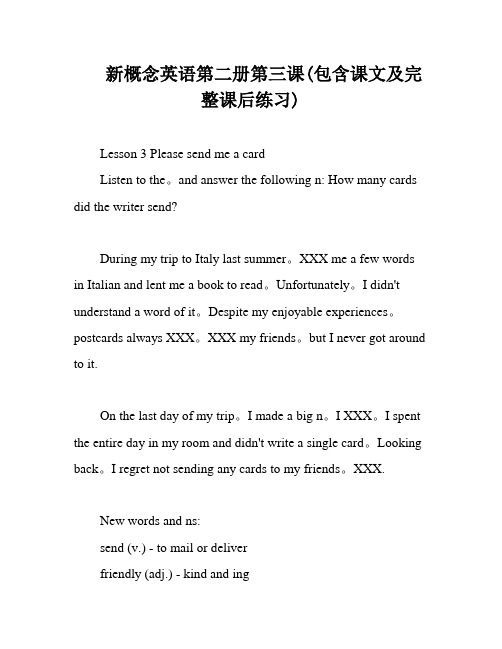
新概念英语第二册第三课(包含课文及完整课后练习)Lesson 3 Please send me a cardListen to the。
and answer the following n: How many cards did the writer send?During my trip to Italy last summer。
XXX me a few words in Italian and lent me a book to read。
Unfortunately。
I didn't understand a word of it。
Despite my enjoyable experiences。
postcards always XXX。
XXX my friends。
but I never got around to it.On the last day of my trip。
I made a big n。
I XXX。
I spent the entire day in my room and didn't write a single card。
Looking back。
I regret not sending any cards to my friends。
XXX.New words and ns:send (v.) - to mail or deliverfriendly (adj.) - kind and ingpostcard (n.) - a card for sending a message by mailwaiter (n.) - a person who XXXspoil (v.) - to ruin or damagelend (v.) - to give something to someone for a short d of timemuseum (n.) - a place where objects of historical。
新概念英语第二册第三课笔记
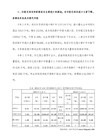
I spend my weekend at my mother's.
I spend three hours in the classroom everyday.
I spend a lot of time in traffic jam.(N5X^X)
7 He spent the whole day in his room. He was in his room ______ day.
a.the hole b.the all c.all d.all of
send/take children to school
:S+R : take : :_ЧNN; take flowers to his wife ]
sendR/f,{ NNS, Y桨f send flowers to his wife ^vN
postcard n. fr
[謏a]/t/T/k/MR1YSr4x獀
Ne, @b厁(ua little Italianba few words of Italian
I can speak a little English/a few words of English
think about/of Q, `, think ofc
think over:Q
3.The writer brought the man a bottle of beer.
(W奸^u;m-N, x0RqN : Can I buy you a bottle of beer ? a:NbUogRvi
What do you think of?
What do you think of the weather today? `O_)Yl`HN7h?
新概念英语第二册第三课课文详解
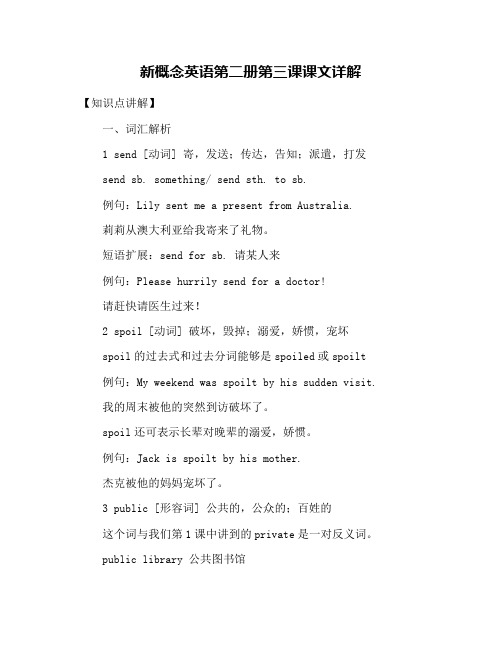
新概念英语第二册第三课课文详解【知识点讲解】一、词汇解析1 send [动词] 寄,发送;传达,告知;派遣,打发send sb. something/ send sth. to sb.例句:Lily sent me a present from Australia.莉莉从澳大利亚给我寄来了礼物。
短语扩展:send for sb. 请某人来例句:Please hurrily send for a doctor!请赶快请医生过来!2 spoil [动词] 破坏,毁掉;溺爱,娇惯,宠坏spoil的过去式和过去分词能够是spoiled或spoilt例句:My weekend was spoilt by his sudden visit.我的周末被他的突然到访破坏了。
spoil还可表示长辈对晚辈的溺爱,娇惯。
例句:Jack is spoilt by his mother.杰克被他的妈妈宠坏了。
3 public [形容词] 公共的,公众的;百姓的这个词与我们第1课中讲到的private是一对反义词。
public library 公共图书馆public transport 公共运输例句:The media has a great influence on public opinion.传媒对大众舆论有很大影响。
public也能够作名词,前面加定冠词the,表示平民,百姓。
例句:The president gave a speech to the public.总统对公众实行了演讲。
4 friendly [形容词] 友好的,友爱的;亲切的,善意的;朋友似的friendly是一个形容词,要特别注意,它的比较级和级分别是friendlier,friendliest。
短语扩展:friendly to/ towards sb.例句:Everyone was friendly to me.每个人对我都很友好。
friendly match 友谊赛5 lend [动词] 借给,借出lend (out) sth. to sb./ lend sb. sth.例句:Can you lend me your cellphone?你能把手机借我用用吗?lend,borrow,keep的区别两者都可表示"借",但是 borrow 指"借入",而 lend 则指"借出",两者其实是一对反义词,而不是同义词。
新概念英语2第三课-课件PPT
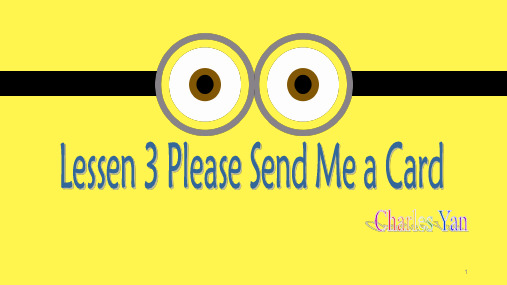
public ['pʌblik] a.公共的
single ['siŋgəl] a.唯一的,单一的
friendly ['frendli] a.友好的
• ★send v. 寄, 送
• send sth. to sb. /send sb. sth. 给某人送(寄)东西 • 类似结构:give sth to sb = give sb sth 给某人某物 • send/take children to school: • take强调某人亲自送; • send则是通过第三人去送, 如美国的校车 • take flowers to his wife 自己送 • send flowers to his wife 叫店里的人送
10
• Christmas card 圣诞贺卡
• Postman 邮递员 postoffice 邮局
11
• ★spoil(spoiled,spoilt) v. 使索然无味, 损坏
• ① vt. 弄坏,损坏,糟蹋 • The rain spoiled the school sports. • Our holidays were spoilt by bad weather.我们假日的乐趣被恶劣天气所破坏。 • ② vt. 宠坏,惯坏,溺爱 • Don’t spoil your children. 不能太惯孩子。 • Spare the rod and spoil the child. 孩子不打不成器。
13
• ★public adj. 公共的
• ① adj. 公共的,公众的,社会的
• There is a public library in this town.
• I always sit in public gardens on Sundays.
【新概念英语第二册第62课-After,the,fire】 新概念英语第二册第三课
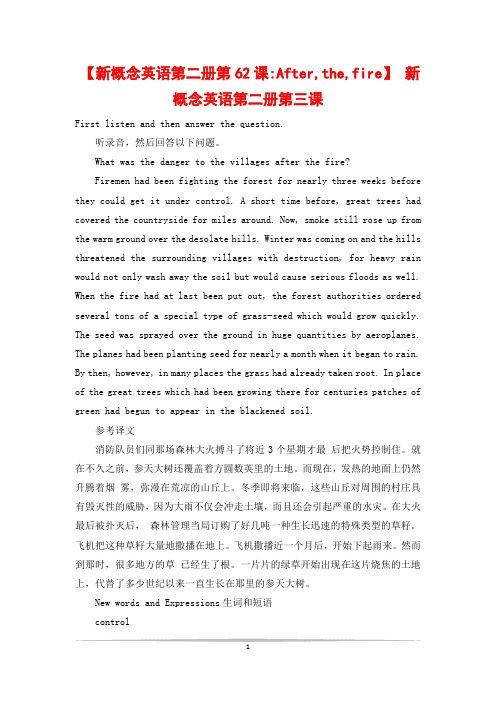
【新概念英语第二册第62课:After,the,fire】新概念英语第二册第三课First listen and then answer the question.听录音,然后回答以下问题。
What was the danger to the villages after the fire?Firemen had been fighting the forest for nearly three weeks before they could get it under control. A short time before, great trees had covered the countryside for miles around. Now, smoke still rose up from the warm ground over the desolate hills. Winter was coming on and the hills threatened the surrounding villages with destruction, for heavy rain would not only wash away the soil but would cause serious floods as well. When the fire had at last been put out, the forest authorities ordered several tons of a special type of grass-seed which would grow quickly. The seed was sprayed over the ground in huge quantities by aeroplanes. The planes had been planting seed for nearly a month when it began to rain. By then, however, in many places the grass had already taken root. In place of the great trees which had been growing there for centuries patches of green had begun to appear in the blackened soil.参考译文消防队员们同那场森林大火搏斗了将近3个星期才最后把火势控制住。
(完整版)新概念英语第二册第三课(包含课文及完整课后练习)(最新整理)
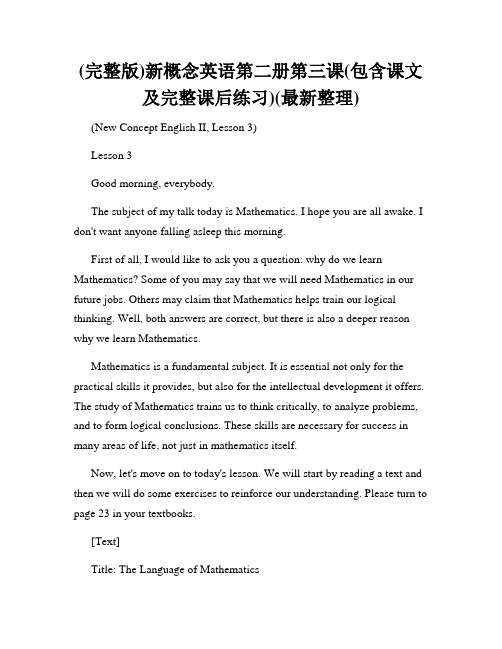
(完整版)新概念英语第二册第三课(包含课文及完整课后练习)(最新整理)(New Concept English II, Lesson 3)Lesson 3Good morning, everybody.The subject of my talk today is Mathematics. I hope you are all awake. I don't want anyone falling asleep this morning.First of all, I would like to ask you a question: why do we learn Mathematics? Some of you may say that we will need Mathematics in our future jobs. Others may claim that Mathematics helps train our logical thinking. Well, both answers are correct, but there is also a deeper reason why we learn Mathematics.Mathematics is a fundamental subject. It is essential not only for the practical skills it provides, but also for the intellectual development it offers. The study of Mathematics trains us to think critically, to analyze problems, and to form logical conclusions. These skills are necessary for success in many areas of life, not just in mathematics itself.Now, let's move on to today's lesson. We will start by reading a text and then we will do some exercises to reinforce our understanding. Please turn to page 23 in your textbooks.[Text]Title: The Language of MathematicsMathematics is a universal language. It is a way of communicating ideas, concepts, and information through numerical symbols and logical patterns. The beauty of Mathematics lies in its simplicity, clarity, and precision.In the world of Mathematics, numbers and symbols take on different meanings and represent various concepts. For example, the symbol "π" represents the ratio of the circumference of a circle to its diameter. Every number and symbol has a specific role and function in the language of Mathematics.Another fascinating aspect of Mathematics is its ability to uncover patterns and unlock the secrets of the universe. Many natural phenomena can be described and predicted using mathematical formulas and equations. From the motion of planets to the growth of populations, Mathematics provides us with a powerful tool for understanding and explaining these complex systems.Mathematics is not only a language of its own, but it also serves as the foundation for other scientific disciplines. Physics, chemistry, economics, and many other fields rely heavily on mathematical principles and models to solve problems and make predictions.In addition to its practical applications, Mathematics is also a subject of aesthetic beauty. The elegance and symmetry found in mathematical proofs and theorems can be comparable to a work of art. Mathematicians strive to discover and create beautiful mathematical structures that are both intellectually satisfying and visually pleasing.[End of Text]Now, let's move on to the exercises.Exercise 1: Answer the following questions based on the text.1. What is Mathematics?2. Why is Mathematics considered a universal language?3. Give an example of a mathematical symbol and its meaning.4. How does Mathematics contribute to other scientific disciplines?5. What is the aesthetic aspect of Mathematics?Exercise 2: Complete the following sentences based on the text.1. Mathematics is a way of communicating __________.2. The symbol "π" represents the ratio of __________.3. Mathematical principles and models are essential in __________.4. Mathematics is not only practical but also __________.5. Mathematicians strive to discover and create __________.Exercise 3: True or False? Indicate whether the following statements are true (T) or false (F) based on the text.1. Mathematics is only used for practical purposes.2. All numbers and symbols have the same role in Mathematics.3. Natural phenomena cannot be described using mathematical formulas.4. Mathematics has no connection to other scientific disciplines.5. Mathematical proofs and theorems can be visually pleasing.That concludes today's lesson. Please complete the exercises on your own and hand them in at the end of the class. Thank you.Note: This is a fictional lesson based on the request provided. The content is not related to the actual "New Concept English" curriculum.。
新概念英语第二册第三课教案
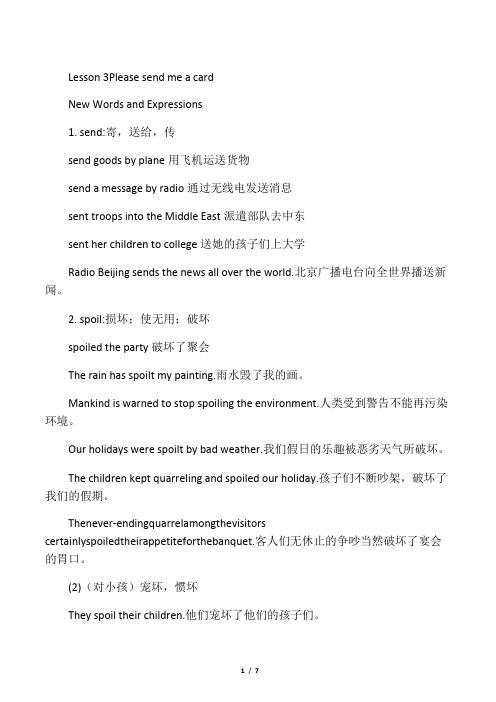
Lesson 3Please send me a cardNew Words and Expressions1. send:寄,送给,传send goods by plane用飞机运送货物send a message by radio通过无线电发送消息sent troops into the Middle East派遣部队去中东sent her children to college送她的孩子们上大学Radio Beijing sends the news all over the world.北京广播电台向全世界播送新闻。
2. spoil:损坏;使无用;破坏spoiled the party破坏了聚会The rain has spoilt my painting.雨水毁了我的画。
Mankind is warned to stop spoiling the environment.人类受到警告不能再污染环境。
Our holidays were spoilt by bad weather.我们假日的乐趣被恶劣天气所破坏。
The children kept quarreling and spoiled our holiday.孩子们不断吵架,破坏了我们的假期。
Thenever-endingquarrelamongthevisitors certainlyspoiledtheirappetiteforthebanquet.客人们无休止的争吵当然破坏了宴会的胃口。
(2)(对小孩)宠坏,惯坏They spoil their children.他们宠坏了他们的孩子们。
The child was spoilt by his grandfather.这个孩子被他的爷爷给惯坏了。
3. friendly:友好的;朋友般的friendly advice友好的建议a friendly warning忠告He is friendly to us all.他对我们大家都很友好。
- 1、下载文档前请自行甄别文档内容的完整性,平台不提供额外的编辑、内容补充、找答案等附加服务。
- 2、"仅部分预览"的文档,不可在线预览部分如存在完整性等问题,可反馈申请退款(可完整预览的文档不适用该条件!)。
- 3、如文档侵犯您的权益,请联系客服反馈,我们会尽快为您处理(人工客服工作时间:9:00-18:30)。
按句子成分分析句子:
主 谓 宾 方状 地状 时状
1. Postcards always spoil my holidays.
spoil (vt)(spoilt/spoiled) 损坏;使索然无味; 宠坏 His parents spoilt him.
2. Last summer, I went to Italy. 春季:spring 秋季:autumn/fall
spend (vt) 花费 (spent; spent)
用句子成分分析!
(明信片) always (使索然无味)my holidays. Last summer, I went to Italy. I visited (博物馆) and sat in (公共的) gardens. A (友好的)(服务 员)taught me a few words of Italian. Then he (借给)me a book. I read a few lines, but I did not understand a word. Every day I thought about (明信片). My holidays passed quickly, but I did not (寄)cards to my friends. On the last day I made a big (决定). I got up early and bought thirty-seven cards. I spent the (整个的) day in my room, but I did not write a (单一的) card!
understand (vt) 理解;明白
I don’t understand you.
I (主)read(谓) a few lines(宾), but(连词) I(主) did not understand(谓) a word(宾).
7. Every day I thought about postcards.
I read a few lines, but I did not understand a word. 我读了几行,但是一个字也不懂。 Every day I thought about postcards. 我每天都想着明信片的事。 My holidays passed quickly, but I did not send cards to my friends. 假期过得真快,但是我还没有给我的朋友们寄过一张明 信片。 On the last day I made a big decision. 到了最后一天,我作出了一项重大决定。 I got up early and bought thirty-seven cards. 我早早起了床,买来了37张明信片。 I spent the whole day in my room, but I did not write a single card! 我在房间了度过了整整一天,然而连一张明信片也没写 成!
on the last day:在最后一天 make a decision 作决定; 下定决心 10. I got up early and bought thirty-seven cards. 用句子成分分析!
11. I spent the whole day in my room, but I did not write a single card.
5. Then he lent me a book. then (adv) 然后;之后
lend (vt) 借给 (lent; lent) borrow (vt) 借过来
6. I read a few lines, but I did not understand a word.
read (vt)读 (read; read)
Lesson 3
Please send me a card
Please send me a card 请给我寄一张明信片 Postcards always spoil my holidays. 明信片总搅得我假日不得安宁。 Last summer, I went to Italy. 去年夏天, 我去了意大利。 I visited museums and sat in public gardens. 我参观了博物馆还坐在公园。 A friendly waiter taught me a few words of Italian. 一位友好的服务员教了我几句意大利语。 Then he lent me a book. 之后还借给我一本书。
summer 夏季: winter 冬季:
3.I visited museums and sat in public gardens.
visit (vt)参观;拜访 昨天他们参观了我们的学校。
They visited our school yesterday.
I visited museums and sat in public Biblioteka ardens.时状 主 谓 宾
think about 考虑;捉摸 8. My holidays passed quickly, but I did not send cards to my friends. pass (vi) 过去;通过
9. On the last day I made a big decision.
主 谓 宾 连词 谓 地状
4.A friendly waiter taught me a few words of Italian.
friend (n) 朋友 friendly (adj) 友好的
teacher (n) 老师 --- teach (vt) 教 (taught ; taught)
a few 一些 a few students 一些学生
